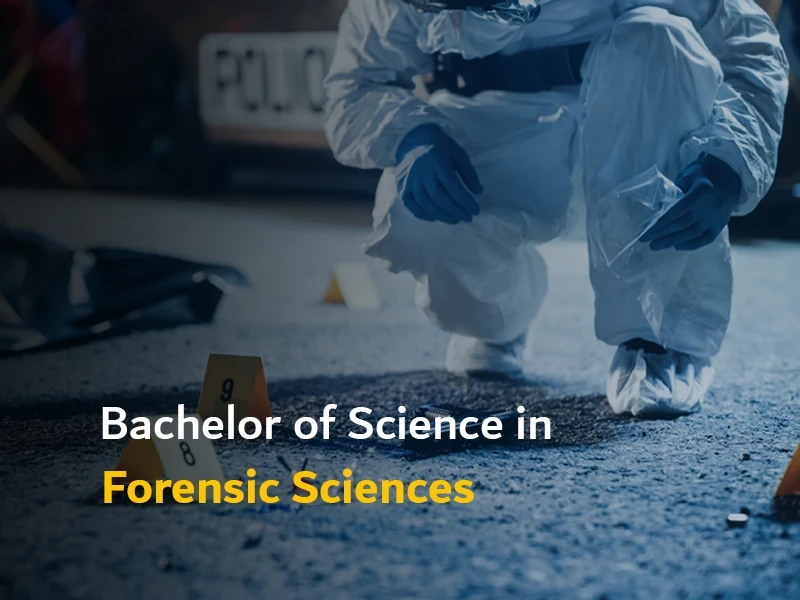
Have you ever been intrigued by the complexity and accuracy of forensic science? This field has been capturing the imagination of people around the world and is expanding beyond solving criminal cases.
Forensic experts are now called to help with civil cases too. From verifying signatures on documents to uncovering evidence in a murder investigation, the possibilities are endless.
At Amity University Dubai, we are leading the way in this exciting field that offers many career opportunities in different sectors, including law enforcement agencies, police departments, detective agencies, and banking. Our state-of-the-art forensics laboratory provides students with the opportunity to engage in practical simulations of forensic studies, such as DNA profiling, fingerprinting, trace evidence analysis, toxicological analysis, handwriting examinations, and questioned documents.
As a student studying for a Bachelor of Science in Forensic Sciences degree, you'll learn about how a crime scene is investigated and the intricate processes involved in collecting and analysing crime scene evidence.
The Bachelor of Science in Forensic Sciences degree aims to introduce students to the interdisciplinary nature of forensic science by exploring emerging techniques and sub-disciplines, such as forensic chemistry and DNA forensics. While providing students with a broad overview of forensic science, the degree also encourages them to explore and develop their specific interests in the field. Some of the subjects taught are Forensic Science, Crime and Society, Criminalistics, Introduction to Forensic Engineering and Forensic Toxicology.
Students can opt for a Bachelor of Science in Forensic Sciences degree with the following concentrations:
- Crime Scene Investigation (CSI)
- Questioned Documents & Fingerprints (QDFP)
- Demonstrate an understanding of the principles and conceptual framework of forensic science, and its applicability to the legal contexts.
- Employ critical evaluation and analytical skills in forensic investigation and evidence management.
- Use effective verbal and written communication skills in legal settings.
3. Competence
- Autonomy and responsibility
- Take individual and team responsibility in examining forensic evidence and casework. - Role in context
- Participate professionally with peers to observe and opine on complex forensic cases. - Self-development
- Take responsibility for advanced learning and professional development.
- Facilitate forensic science solutions in social, ethical and legal contexts.
- Demonstrate an in-depth understanding of methods and techniques applicable to crime scene investigation.
- Apply the specialised skills of crime scene investigation and reconstruction in legal and professional settings.
- Demonstrate an in-depth understanding of tools and techniques applicable to the fields of questioned documents and dermatoglyphics.
- Use specialised technology for questioned document and fingerprint evidence examination.
50%scholarships available
























